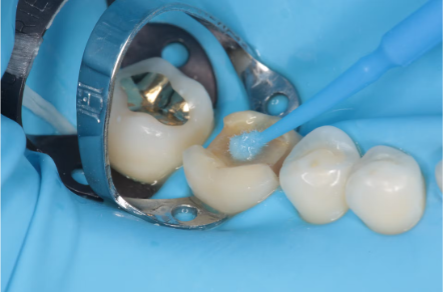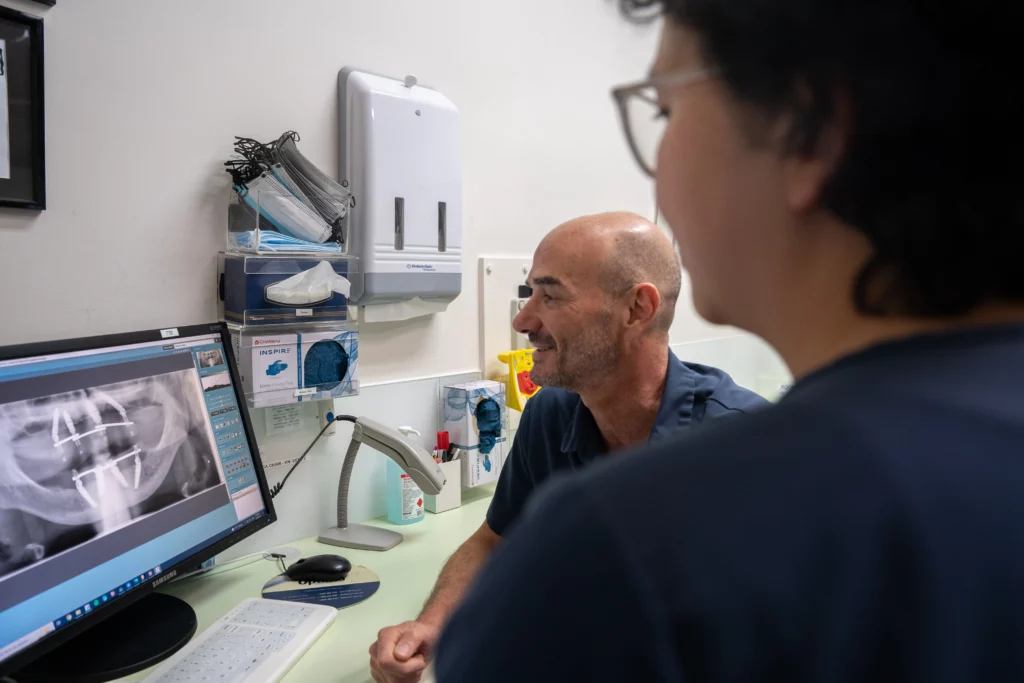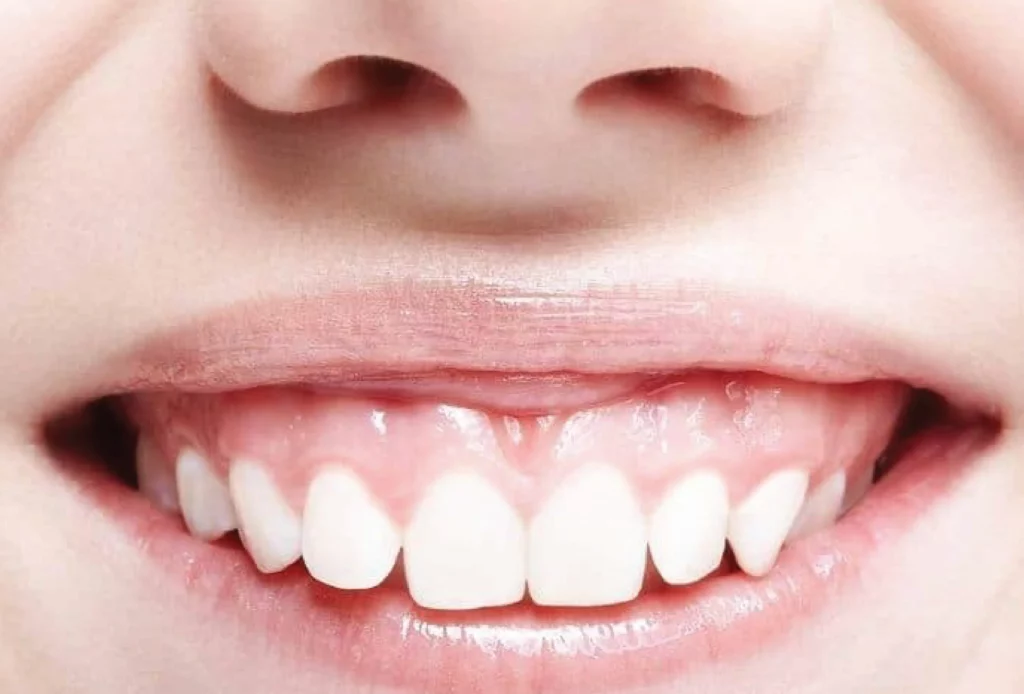Having a full set of teeth helps people live fuller, more comfortable lives. Unfortunately, there are many ways that one’s oral health and teeth can deteriorate. Losing a tooth doesn’t need to be permanent though. Dental implants and other teeth replacement options can supplant any lost parts of your smile with a stable replacement.
While many implants will only replace a single tooth at a time, some patients require a more extensive solution. For those who have lost most or all of their natural teeth, those with a ‘terminal dentition’ or ill-fitting dentures, full mouth dental implants are the revolutionary dental solution to immediately and permanently restore a full set of teeth.
What are full mouth dental implants?
There are many terms and descriptions used by different clinics and providers to describe treatments involving ‘full mouth implants’. Some of the common terms used are: All On Implants, All-On-4 dental implants, All-On-4plus dental implants, AO4, AO4plus, All on X, All On 6, Proarch and Neoarch. They all describe a sophisticated type of dental implant treatment, using a minimum of four implant posts to support a full arch of teeth in the upper or lower jaw. Traditional implants use one implant for each missing tooth, but the ‘All On’ concept allows us to support an entire arch. We place the implant posts at strategic, stable points in the jaw where primary stability can be achieved.
Each implant placed into the jaw then goes through a process known as osseointegration. This is where the natural jaw bone secures to the surface of the implant and locks it in place.
Why only four implants?
While most cases only require four implant posts to be placed, it is possible to add more if necessary. Adding more is recommended in younger patients and when the patient has poor quantity and quality of residual natural bone. The additional implants create more stability for the new arch of teeth and can eliminate the need for bone grafting.
For patients over 65 and where there is enough bone, a full teeth replacement can be completed with four implants. Two implants will be placed at the front of the jaw underneath the front replacement teeth, and one on each side at the back of the jaw. This provides an even spread to support the arch.

Who can get them?
As mentioned, whole mouth dental implants were developed to restore teeth to patients missing all or most of their teeth (terminal dentition), or for those whose existing teeth suffer from extensive decay and gum/periodontal disease. Additionally, patients with replacement teeth like dentures may benefit from full mouth implants for more stability. This is great for patients who have tried using dentures but find them uncomfortable, difficult to eat with and unstable. Poor dentures can cause ulcers and pain, and tend to fall out whilst eating, drinking or speaking without using sticky ‘denture adhesives’.
By being able to spread out the implant posts placing them in areas where there is still bone — occasionally in bone remote to the jaws (Pterygoid and Zygoma implants) — this is less of a problem than it would be for a single implant tooth replacement. Your dentist will use 3D scans to identify ideal placement areas where implants will be the most stable.
Timeline of procedure and recovery
Every treatment begins with a detailed consultation. The dentist assesses if full mouth implant restoration is a viable treatment option for you. This includes examining existing bone volume and density, as well as overall oral and systemic health. Treatment only begins if the dentist is sure it will be safe and predictable. When satisfied, the dentist will use 3D scans to choose the ideal locations for the implant posts. A series of digital dental scans and photographs are taken and these are used to plan your new smile.

From there, the dentist will book you in for a surgical appointment to prepare the jaw. This process may also include removing any remaining teeth to create room for the full tooth replacement bridge . Once implants have been placed, it typically takes 1-2 days to fabricate the replacement tooth bridge before attaching it.
Once your new full mouth implants are placed, you should prepare for some minor discomfort in your jaw. We recommend maintaining a soft diet for the first few months after surgery while osseointegration occurs.
Balancing cosmetic and surgical concerns
Full mouth dental implants offer balance between a cosmetic improvement to your teeth and a more comfortable and stable bite. When considering treatment, patients should be conscious of how much experience their dentist has and the materials being used.
At CDIC, our principal dentist Dr Hillel New is highly experienced in both cosmetic and surgical dentistry. He knows how to strike the balance to ensure results look and feel good, and last as long as possible. There are few people practising dentistry in Australia who have been placing implants for as long as Dr New. He attended the first ever formal Australian training program for this type of treatment, way back in 2004. He has seen it all and can draw from his vast experience over many years when planning your treatment.
Full mouth vs standard implants
Traditional implants are still a very reliable and safe option for tooth replacement, but they are better suited to cases of one or only a few missing teeth. When there are lots of teeth in the upper or lower jaw missing, whole mouth dental implant treatments offer both a reduced time in surgery and a more streamlined recovery process, all while often requiring fewer implant posts. Your dentist will help you understand which implant solution would be most suitable to you based on your individual circumstances, bone structure, and budget.
Risks
While we do our best to maintain the highest safety levels and longevity in our treatments, there are risks associated with all surgical procedures and full mouth implant surgery does have some minor risks. In rare cases, you may experience implant failure or rejection where an implant struggles to fuse with existing bone, or becomes infected. Thankfully, there is minimal risk of either of these outcomes occurring. It is important to have a conversation beforehand where your dentist will explain all potential risks, and how to manage the aftercare period.

How much are full dental implants?
The cost of full mouth dental implants will vary for each patient depending on a number of factors, including the complexity of the treatment and the location of the implant posts. Additionally, needing to use more than four implants will increase the full mouth dental implants cost as well. Full mouth implants offer better longevity and greater reliability than other replacement options. Compared to dentures or single implants, full mouth implants are typically a more cost-effective, longer lasting teeth replacement solution, and do not require additional treatments.
How long do they last?
Proper aftercare will ensure your new teeth replacements last as long as possible. This includes attending your regular six-monthly check and maintenance appointments. This allows us to evaluate the health of your implants, surrounding soft tissues and prevent any complications before they arise. Additionally, patients need to be vigilant with their regular home oral hygiene practices, including daily brushing and flossing.
Your dentist will provide you with a comprehensive list of post-surgery care instructions. This usually includes following a soft diet for the first couple of months and using over-the-counter pain medication for a few days post-operation. If patients follow these important aftercare instructions, your implants have the potential to last a lifetime. However, the teeth do wear. Depending on the rate of this wear, the ‘teeth’ can be replaced in a day. This is done in a similar fashion to having the tyres changed on your car. The bridge can be removed in a morning appointment and in the afternoon they can be reinserted with brand new teeth.
The best in teeth replacement
Full mouth implant treatment is sophisticated and extensive, but also arguably the best option for those suffering with significant tooth loss. Dr Hillel New was one of the first dentists in Australia formally trained to deliver All On 4 implants and to date has completed hundreds of cases. He and the CDIC team are very experienced and confident with the procedures involved in complex full mouth implant treatments. We are ready to help patients get new teeth, a new reinvigorated smile and ensure lasting excellent oral care. Get in touch today to book a consultation and find out how we can help you achieve your dream smile.



